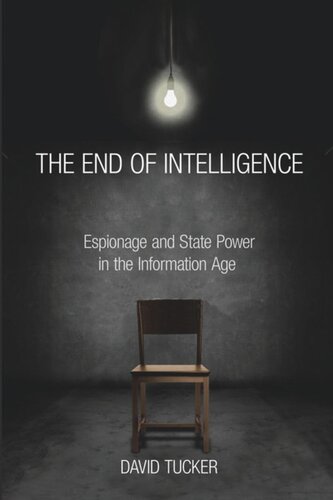

Most ebook files are in PDF format, so you can easily read them using various software such as Foxit Reader or directly on the Google Chrome browser.
Some ebook files are released by publishers in other formats such as .awz, .mobi, .epub, .fb2, etc. You may need to install specific software to read these formats on mobile/PC, such as Calibre.
Please read the tutorial at this link: https://ebookbell.com/faq
We offer FREE conversion to the popular formats you request; however, this may take some time. Therefore, right after payment, please email us, and we will try to provide the service as quickly as possible.
For some exceptional file formats or broken links (if any), please refrain from opening any disputes. Instead, email us first, and we will try to assist within a maximum of 6 hours.
EbookBell Team

0.0
0 reviewsUsing espionage as a test case, The End of Intelligence criticizes claims that the recent information revolution has weakened the state, revolutionized warfare, and changed the balance of power between states and non-state actors—and it assesses the potential for realizing any hopes we might have for reforming intelligence and espionage.
Examining espionage, counterintelligence, and covert action, the book argues that, contrary to prevailing views, the information revolution is increasing the power of states relative to non-state actors and threatening privacy more than secrecy. Arguing that intelligence organizations may be taken as the paradigmatic organizations of the information age, author David Tucker shows the limits of information gathering and analysis even in these organizations, where failures at self-knowledge point to broader limits on human knowledge—even in our supposed age of transparency. He argues that, in this complex context, both intuitive judgment and morality remain as important as ever and undervalued by those arguing for the transformative effects of information.
This book will challenge what we think we know about the power of information and the state, and about the likely twenty-first century fate of secrecy and privacy.